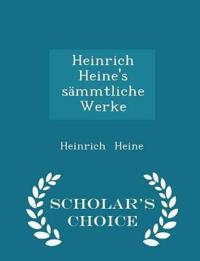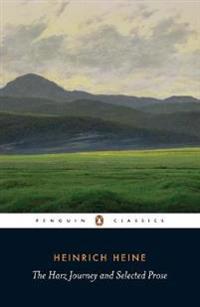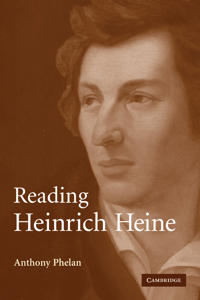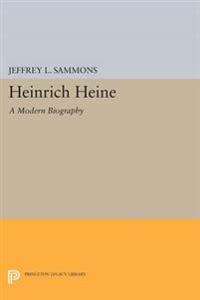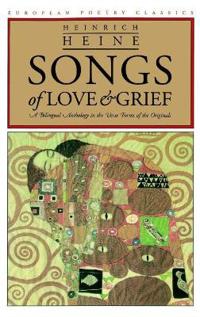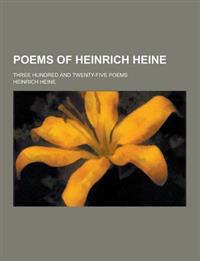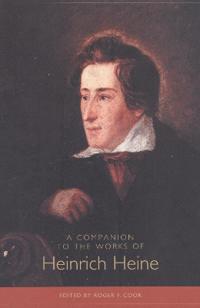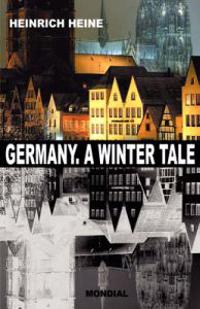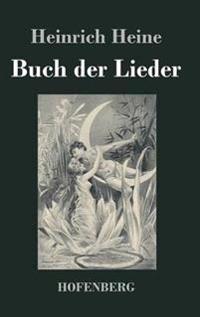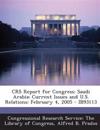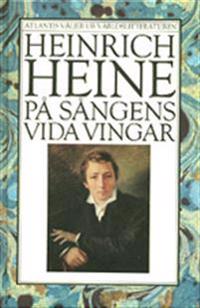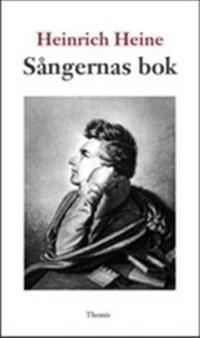Heinrich Heine's Sammtliche Werke - Scholar's Choice Edition (Häftad)
avHeinrich Heine
ISBN: 9781296093921 - UTGIVEN: 2015-03The Harz Journey and Selected Prose (Storpocket)
avHeinrich Heine
ISBN: 9780140448504 - UTGIVEN: 2006-06A poet whose verse inspired music by Schubert, Schumann, Mendelssohn and Brahms, Heinrich Heine (1797-1856) was in his lifetime equally admired for his elegant prose. This collection charts the development of that prose, beginning with three meditative works from the "Travel Pictures", inspired by H[...]
Reading Heinrich Heine
ISBN: 9780521142212 - UTGIVEN: 2010-04This book is a comprehensive study of the nineteenth-century German poet Heinrich Heine. Anthony Phelan examines the complete range of Heine's work, from the early poetry and 'Pictures of Travel' to the last poems, including personal polemic and journalism. Phelan provides original and detailed read[...]
Heinrich Heine: A Modern Biography (häftad)
ISBN: 9780691616421 - UTGIVEN: 2014-07Heinrich Heine has been one of the liveliest topics in German literary studies for the past fifteen years. His life was marked by an exceptionally high pitch of constant public controversy and an extraordinary quantity of legend and speculation surround his reputation. This biography, the first in E[...]
Songs of Love and Grief (Häftad)
avHeinrich Heine
ISBN: 9780810113244 - UTGIVEN: 1996-02Heinrich Heine (1797-1856) is undoubtedly Germany's most significant poet of the nineteenth century, second in importance only to Goethe. Heine's poetry appeared in all major European languages and was immensely popular throughout the nineteenth century, but has been neglected by modern readers. Now[...]
Last Poems: Selected by William Rose (Pocket)
avHeinrich Heine
ISBN: 9781107621077 - UTGIVEN: 2013-02-07Originally published in 1954, in the Cambridge Plain Texts series, this volume contains a selection of Heinrich Heine's late poems.[...]
Poems of Heinrich Heine; Three Hundred and Twenty-Five Poems (häftad)
ISBN: 9781230206912 - UTGIVEN: 2013-09A Companion to the Works of Heinrich Heine
ISBN: 9781571134493 - UTGIVEN: 2010-06As the most prominent German-Jewish Romantic writer, Heinrich Heine (1797-1856) became a focal point for much of the tension generated by the Jewish assimilation to German culture in a time marked by a growing emphasis on the shared ancestry of the German Volk. As both an ingenious composer of Roman[...]
Deutschland, ein Wintermärchen (Pocket)
avHeinrich Heine
ISBN: 9783150022535"Beruhigt euch", schreibt Heine 1844 im Vorwort zu seinem Versepos Deutschland. Ein Wintermärchen an die Adresse seiner patriotischen Landsleute. "Beruhigt euch. Ich werde eure Farben achten und ehren, wenn sie es verdienen, wenn sie nicht mehr eine müÃige oder knechtische Spielerei sind. P[...]
Heinrich Heine
ISBN: 9783257202588 - UTGIVEN: 2008-07150 Jahre nach dem Tod von Heinrich Heine, 35 Jahre nach dem Tod von Ludwig Marcuse und über 70 Jahre nach der ersten Auflage ist diese Biographie noch immer aktuell: als Dokument, als Vorbild, als Mahnung gegen das Vergessen.[...]
Sämtliche Gedichte in zeitlicher Folge (Pocket)
avHeinrich Heine
ISBN: 9783458336631 - UTGIVEN: 1997-05Atta Troll. Ein Sommernachtstraum / Deutschland. Ein Wintermärchen (Inbunden)
avHeinrich Heine
ISBN: 9783596509126 - UTGIVEN: 2005-04"Heinrich Heine (bis zur protestantischen Taufe 1825: Harry Heine) wurde am 13. Dezember 1797 als Sohn einer jüdischen Kaufmannsfamilie in Düsseldorf geboren. Nach dem Scheitern seiner kaufmännischen Laufbahn studierte er Jura und promovierte. Ab 1826 lebte Heine als freier Schriftsteller und gin[...]
Die Harzreise (Pocket)
avHeinrich Heine
ISBN: 9783872911582 - UTGIVEN: 198001Im September 1826 unternahm Heine eine Fussreise von Göttingen durch den Harz bis nach Jena, von wo er schliesslich seine Reise nach Weimar zu Goethe fortsetzte. Seine Reiseeindrücke hielt er noch im selben Jahr unter dem Titel "Die Harzreise" fest. Doch als reine Reisebeschreibung hätte "D[...]
Die Harzreise (Häftad)
avHeinrich Heine
ISBN: 9783880420953 - UTGIVEN: 2008-10"Den Herbst machte ich eine Fußreise nach dem Harz, den ich die Kreuz und Quer durchstreifte, besuchte den Brocken, so wie auch Goethe auf meiner Rückreise über Weimar. Ich reiste nämlich über Eisleben, Halle, Jena, Weimar, Erfurt, Gotha, Eisenach und Kassel hierher wieder zurück. Viel Schöne[...]
På sångens vida vingar (Inbunden)
avHeinrich Heine
ISBN: 9789174863253 - UTGIVEN: 198401Med Sångernas bok, Buch der lieder, som utkom 1827, grundlade den tyske poeten Heinrich Heine (17971856) sin berömmelse. Detta ungdomsverk översatt till alla kulturspråk fick en ständigt stigande efterfrågan. Tretton upplagor utkom under diktarens livstid.
Heines växande läsekre[...]Sångernas bok (Häftad)
avHeinrich Heine
ISBN: 9789197835954 - UTGIVEN: 201105Ingen tyskspråkig författare har tonsatts så ofta som Heinrich Heine - närmare sjutusen tonsättningar har listats. I denna volym presenteras originalet som parallelltext.
Martin Tegen har tidigare tolkat bl.a.
R. M. Rilkes Sonetterna till Orfeus (2009),
J. W. Go[...]

